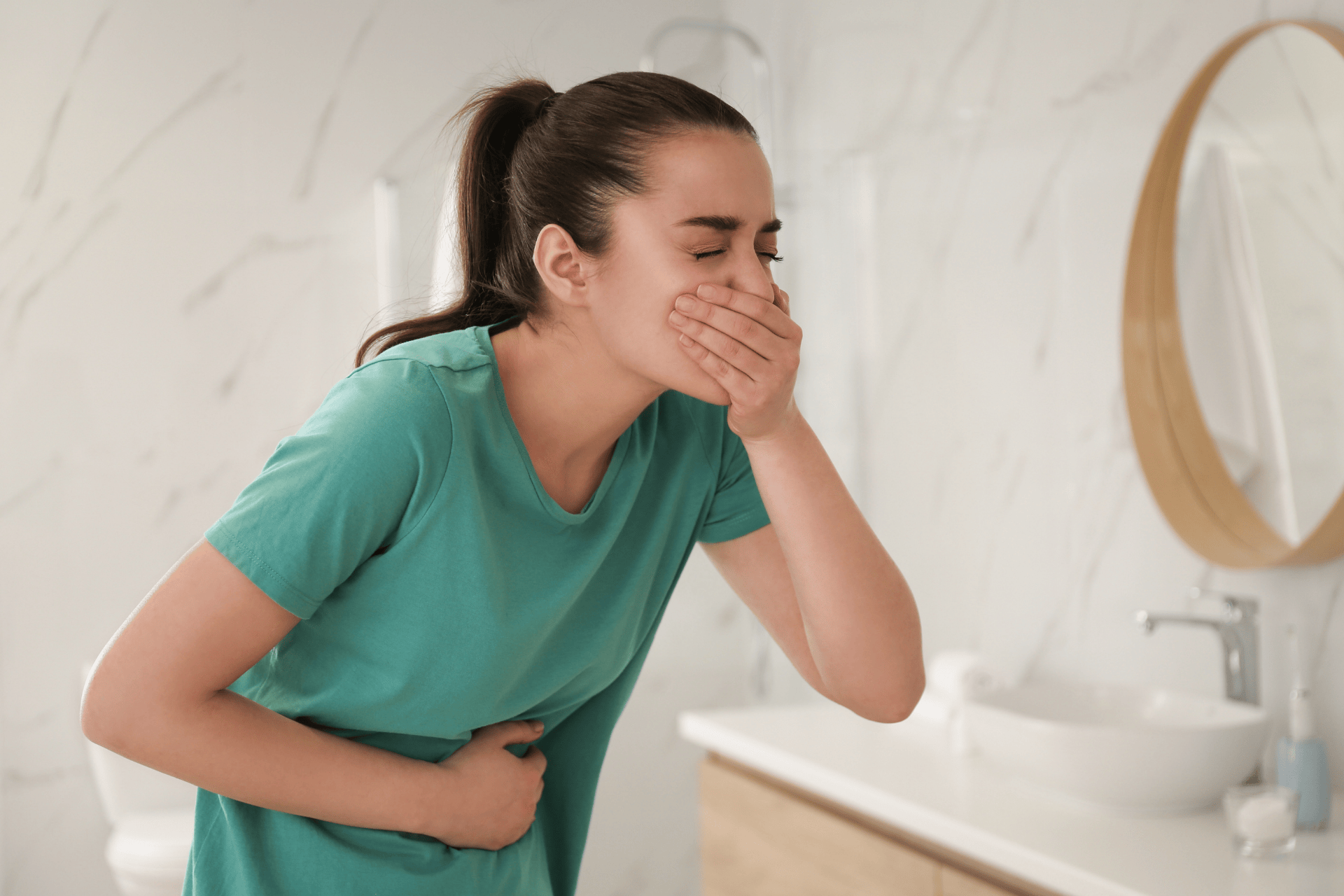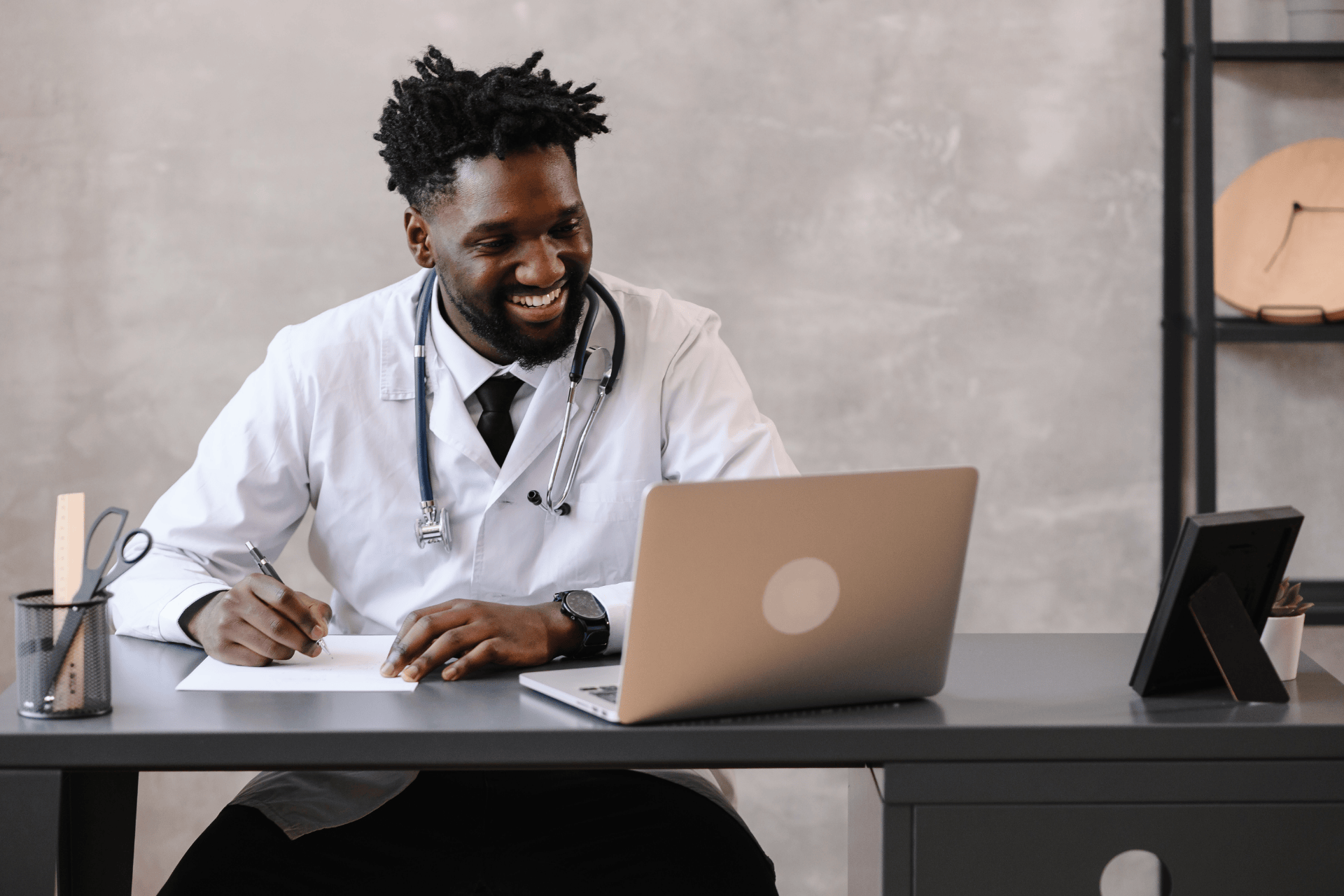Exercises for Lower Back Pain: What Helps Most
Why Movement Matters for Back Pain ReliefLower back pain affects millions of people every year. The good news is that the right exercises can make a real difference. Finding [...]
Read More
Medically reviewed by Alan Lucks | MD, Alan Lucks MDPC Private Practice - New York on November 8th, 2025.
Viral gastroenteritis spreads person-to-person through contaminated surfaces and close contact, with symptoms appearing 12-48 hours after exposure and lasting 1-3 days.
Bacterial contamination from specific meals causes more severe abdominal cramping and often produces bloody stools, unlike the watery diarrhea typical of viral infections.
Onset timing provides crucial clues: symptoms within 1-6 hours suggest bacterial toxins (like from potato salad left in heat), while 12+ hour delays point to viral causes.
Crowded environments like cruise ships, schools, and nursing homes create viral outbreaks affecting multiple people simultaneously, whereas foodborne illness typically affects only those who ate the contaminated item.
Dehydration becomes dangerous when you cannot keep fluids down for 24 hours, have decreased urination, dizziness when standing, or dry mouth and skin tenting.
When it comes to sudden stomach upset, nausea, vomiting, and diarrhea, many people wonder if they are dealing with norovirus or food poisoning. Both conditions share similar symptoms, making it challenging to tell them apart without professional guidance. Understanding the differences is crucial for effective treatment and preventing the spread of illness.
Norovirus is a highly contagious virus that causes inflammation of the stomach and intestines, often referred to as viral gastroenteritis. It spreads easily through contaminated food, water, surfaces, or close contact with infected individuals. On the other hand, food poisoning results from consuming food contaminated with harmful bacteria, viruses, or toxins. Common culprits include Salmonella, E. coli, and Listeria.
While both conditions can cause discomfort and dehydration, their causes and management strategies differ. Knowing which one you might be facing can help you seek the right care promptly. For quick and reliable advice, telehealth services like Doctronic.ai offer expert AI-driven medical consultations that can guide you through your symptoms anytime, anywhere.
Norovirus outbreaks are particularly common in crowded environments such as cruise ships, nursing homes, and schools, where close contact facilitates rapid transmission. Symptoms usually appear 12 to 48 hours after exposure and can last for one to three days. The virus is resilient and can survive on surfaces for extended periods, making thorough cleaning and hand hygiene critical in preventing its spread. In contrast, food poisoning symptoms can develop within hours or days after consuming contaminated food, depending on the pathogen involved. This variability can complicate diagnosis, as individuals may not immediately associate their symptoms with a recent meal.
Preventive measures for both conditions emphasize the importance of proper food handling and personal hygiene. Washing hands thoroughly with soap and water, especially after using the restroom or before preparing food, is essential. Additionally, cooking food to safe temperatures and avoiding cross-contamination in the kitchen can significantly reduce the risk of foodborne illnesses. In the case of norovirus, it’s advisable to stay home if you are infected to avoid spreading the virus to others, as it can be transmitted even after symptoms have resolved. Understanding these nuances can empower individuals to take proactive steps in safeguarding their health and the health of those around them.
 Symptoms: How to Tell Them Apart
Symptoms: How to Tell Them ApartNorovirus symptoms usually appear within 12 to 48 hours after exposure. The hallmark signs include sudden onset of nausea, vomiting, watery diarrhea, and stomach cramping. Some people may also experience low-grade fever, muscle aches, and fatigue. The illness typically lasts one to three days, but it can be severe in young children, the elderly, or those with weakened immune systems.
Food poisoning symptoms can vary widely depending on the contaminant, but often include nausea, vomiting, diarrhea, abdominal pain, and sometimes fever. The onset time can range from a few hours to several days after eating contaminated food. For example, Staphylococcus aureus toxin causes symptoms within hours, while Listeria might take days or weeks to manifest. Some types of food poisoning can also lead to more serious complications, such as dehydration or neurological issues.
While both conditions share many symptoms, norovirus tends to cause more vomiting and rapid onset, whereas food poisoning often involves more severe abdominal cramps and diarrhea. Fever is more common in bacterial food poisoning cases. Additionally, norovirus is highly contagious and often causes outbreaks in close communities like schools or cruise ships, while food poisoning usually stems from a specific contaminated meal.
Most cases of norovirus and mild food poisoning resolve on their own with rest and hydration. However, certain symptoms indicate the need for prompt medical attention. These include persistent vomiting, signs of dehydration (such as dizziness, dry mouth, or reduced urination), bloody stools, high fever, or symptoms lasting more than a few days.
Accessing medical care can sometimes be challenging, especially if you are unsure whether your symptoms require urgent attention. This is where innovative telehealth services like Doctronic.ai come into play. Doctronic offers AI-powered doctor visits 24/7 across all 50 states, providing fast, affordable, and personalized care from the comfort of your home. With over 10 million users, Doctronic is revolutionizing how patients receive primary care by combining the latest in medical research with AI technology.
 Diagnosis and Treatment Approaches
Diagnosis and Treatment ApproachesNorovirus is usually diagnosed based on symptoms and recent exposure history, such as contact with an infected person or attendance at an outbreak site. Laboratory tests can confirm the virus, but are not commonly required. Treatment focuses on managing symptoms—primarily staying hydrated and resting. There is no specific antiviral medication for norovirus, so prevention through handwashing and disinfecting surfaces is critical.
Food poisoning diagnosis may involve stool tests to identify the bacteria or toxin responsible, especially in severe cases. Treatment depends on the cause, but often includes hydration and sometimes antibiotics if a bacterial infection is confirmed. Avoiding certain foods and practicing safe food handling can prevent future episodes.
Given the overlapping symptoms, getting an accurate diagnosis can be tricky. AI-driven platforms like Doctronic.ai synthesize the latest peer-reviewed medical research to provide comprehensive, evidence-based answers quickly. Their AI doctor remembers your health history, offering personalized advice that can help you decide whether to manage symptoms at home or seek urgent care. This smarter, faster, and more personal approach to healthcare is especially valuable during outbreaks or when access to in-person medical care is limited.
Prevention is the best defense against both norovirus and food poisoning. For norovirus, frequent handwashing with soap and water, disinfecting contaminated surfaces, and avoiding close contact with infected individuals are essential. If you are sick, staying home to prevent spreading the virus is crucial.
Food poisoning prevention involves proper food handling, cooking meats to safe temperatures, avoiding cross-contamination, and consuming only pasteurized dairy products. Being mindful of food storage and expiration dates also reduces risk. When dining out, choosing reputable establishments with high hygiene standards can help protect your health.
In today’s fast-paced world, having immediate access to reliable medical advice is invaluable. Doctronic.ai offers a unique AI-powered doctor experience that combines the latest medical knowledge with personalized care. Whether you suspect norovirus, food poisoning, or any other health concern, Doctronic can provide quick, accurate guidance and affordable telehealth visits with licensed doctors 24/7.
With over 10 million users and growing, Doctronic is changing the way people approach primary care. Their AI doctor never gets tired, remembers your health history, and delivers answers in seconds. This means faster diagnosis, smarter treatment recommendations, and more personal care at your fingertips.
Distinguishing between norovirus and food poisoning can be challenging, but understanding their symptoms, causes, and treatments is the first step toward effective care. Staying hydrated, monitoring symptoms, and knowing when to seek medical help are vital. Telehealth platforms like Doctronic.ai offer an accessible, trustworthy resource for navigating these common illnesses with confidence.
By combining modern technology with medical expertise, Doctronic empowers patients to make informed health decisions quickly and conveniently. Whether you need an AI diagnosis or a video visit with a licensed doctor, Doctronic is your partner in achieving better health outcomes, anytime and anywhere.
Don't let the uncertainty of gastrointestinal symptoms slow you down. With Doctronic, you get the fastest, smartest, and most personal healthcare experience at your fingertips. Our AI Doctor is ready to provide you with a free, comprehensive diagnosis in seconds, drawing on the latest peer-reviewed medical research. And if you need more, our telehealth video visits connect you with licensed doctors 24/7 for less than $40. Over 10 million users have already chosen Doctronic for their healthcare needs. Skip the line. Talk to an AI Doctor Now, for free.
Track your exposure history and symptom timeline—if others around you are sick, it's likely viral; if only you're affected after a specific meal, suspect food contamination. Both conditions resolve on their own within days with proper hydration, but persistent symptoms warrant medical evaluation. If you're experiencing concerning symptoms and need guidance on when to seek care, Doctronic can help assess your situation.
Why Movement Matters for Back Pain ReliefLower back pain affects millions of people every year. The good news is that the right exercises can make a real difference. Finding [...]
Read MoreWhat Tech Neck Is and Why It’s So CommonYour neck was not designed for smartphones. The human spine evolved over millions of years to support a head positioned directly above [...]
Read MoreWhat Women Need to Know About Perimenopause SupportThe menopause supplement market has grown rapidly in recent years, reflecting a clear trend: millions of women are actively [...]
Read More